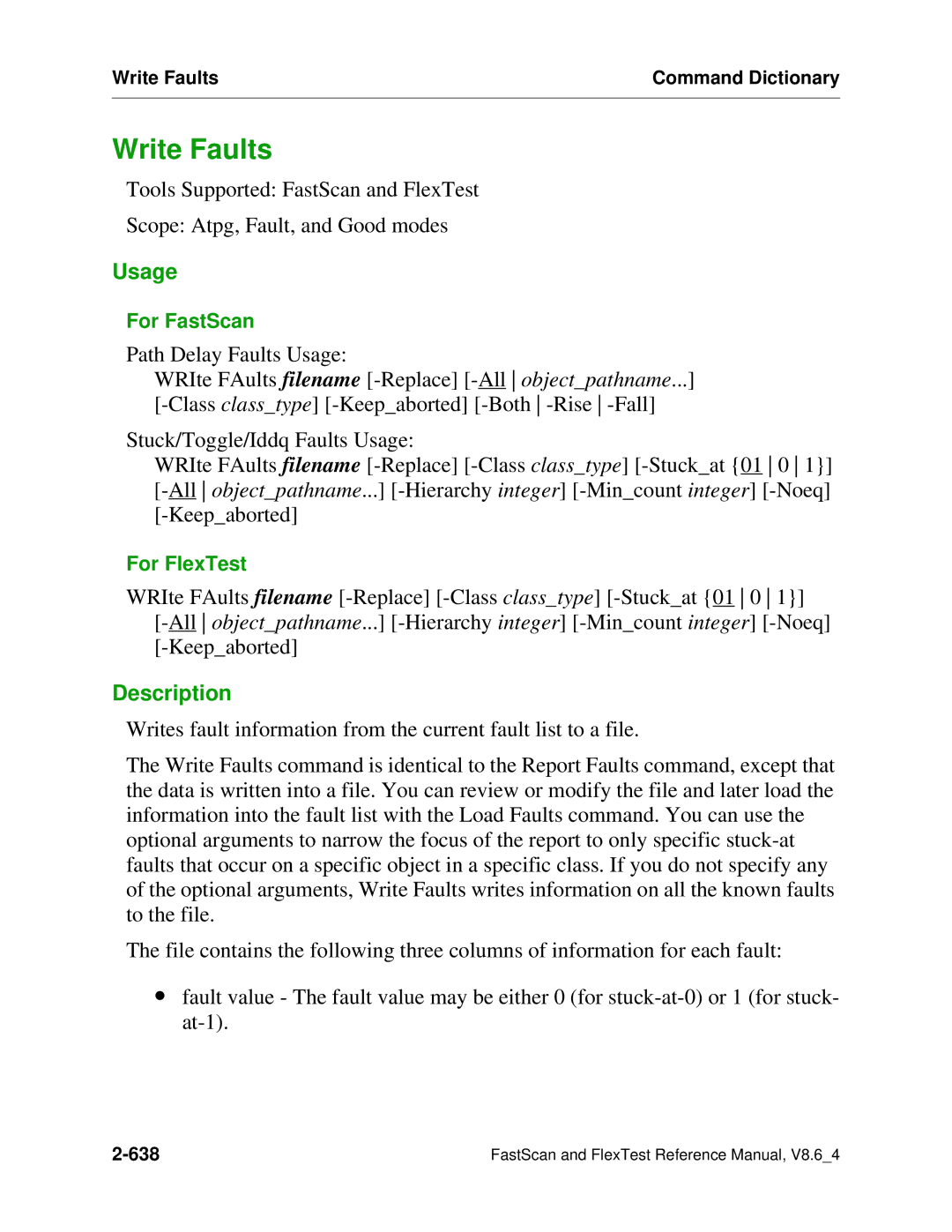Write Faults | Command Dictionary |
|
|
Write Faults
Tools Supported: FastScan and FlexTest
Scope: Atpg, Fault, and Good modes
Usage
For FastScan
Path Delay Faults Usage:
WRIte FAults filename
Stuck/Toggle/Iddq Faults Usage:
WRIte FAults filename
For FlexTest
WRIte FAults filename
Description
Writes fault information from the current fault list to a file.
The Write Faults command is identical to the Report Faults command, except that the data is written into a file. You can review or modify the file and later load the information into the fault list with the Load Faults command. You can use the optional arguments to narrow the focus of the report to only specific
The file contains the following three columns of information for each fault:
∙fault value - The fault value may be either 0 (for
FastScan and FlexTest Reference Manual, V8.6_4 |
